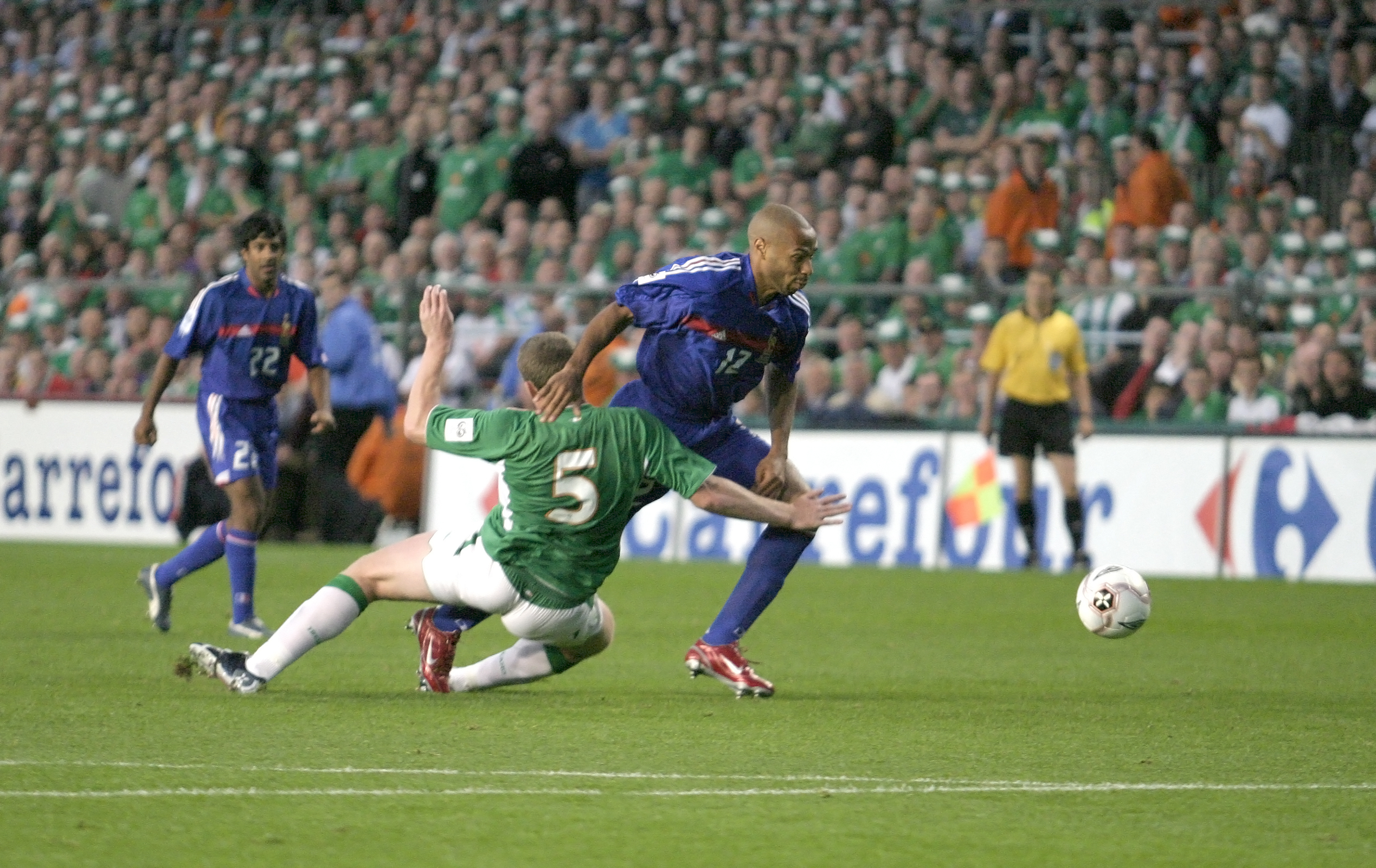
The teams that left us not asking for more
There are always two sides to the coin. Football history is abundant with inspiring teams and players, uniting opposing fans, and becoming a consensus. At the same time, there are the inglorious bastards of the game, those who created deep antagonism along the way, each for their own reason. Being the pinnacle event of sports, the World Cup has both to offer. In this list, we’ll rank those we don’t remember fondly.
5. Brazil 2014
The 2014 version of the Seleção, which saw them hosting the tournament for the first time in 64 years, didn’t do anything particularly wrong. Moreover, the way they exited the tournament could provoke pity from lovers of the game. Others, however, feel that it was a worthy ending for a terrible period in the history of one of the biggest football nations. We’ll get to that soon.
Luiz Felipe Scolari was put in charge of leading Brazil through its home-turf campaign with the hope of reviving the glory of 2002. This was supposed to be the peak of a recovery period following the lows of Dunga and Mano Menzes’ terms. But when the tournament kicked off, Brazilian fans and neutrals alike had very little to relate to. 22-year-old Neymar, coming off his first season of European football, was the only source of inspiration, surrounded by mediocre attacking talents such as Oscar, Willian, Hulk, Fred, Bernard, and Jô. Adding to that, Felipão’s tactics were outdated, with his team covering for lack of skill with unprecedented aggressiveness. They made 28 fouls in their round of 16 tie against Chile before breaking their own record for most fouls in a single game with 31 against Colombia in the quarter-finals.
They looked as if they made it to the final four only through inertion and support from their home crowd. Without Neymar, an injured casualty of the brutal battle with Colombia, and Thiago Silva, who was sidelined due to yellow cards, Brazil had nothing to offer against Germany. Die Mannschaft showed no emotion, destroying them 7-1, effectively taking the air out of the ball for a lot of players’ careers.
4. England 2006
The 1990s and 2000s are not a good window display for English footballers. They were full of talent, but they were constantly not living up to their expectations and underachieving compared to their Italian, Brazilian, Spanish, and German counterparts. They lived extravagantly, feeding the tabloids, modeling lad culture, and failing miserably in international competitions. The height of the period was the 2006 World Cup, to which the Three Lions came in as self-proclaimed favorites. And then everything collapsed. Michael Owen and Wayne Rooney arrived at the tournament injured, with the 17-year-old Theo Walcott called in to save the nation’s attack. The WAGs grabbed the headlines and offered a proper distraction. The Gerrard-Lampard partnership didn’t live up to its promise, and the whole team just lacked spirit. “We were 10-15 years tactically behind our time,” recalled Joe Cole.
The result was an uninspiring grind through what should have been an easy group stage, a solid 1-0 victory over Ecuador in the round of 16 before a quarter-final best remembered for the feud between Rooney and Cristiano Ronaldo. Portugal defeated England, adding another penalty-shootout loss to the book of memories, and sent the team home, ending Sven-Göran Eriksson’s tenure at the helm.
To add to the miserable performance, the English fans paid no respect to their hosts, demonstrating acts of hooliganism on several occasions.Everyone was relieved when England and their fans left Germany to go back home.
3. South Korea 2002
A host country with no previous success making it to their first-ever semifinals at the expense of countries like Italy and Spain? That’s right. This isn’t anything against South Korea, who’ve benefitted massively as a football nation from their 2002 World Cup run. They say that only the bottom line remains, but ask every football fan who watched the games when they happened, and they’ll undermine the achievement by attributing it to poor refereeing.
Everything was fine in the group stage, in which the Asian nation impressed with wins over Poland and Portugal all the way to their first appearance in the knockout rounds. But then the focus shifted from football to other things. In the round of 16, Spain were disallowed three legitimate goals by the referee and the linesmen, leading the game to extra time and penalties in which the hosts came out with the upper hand. The horror show continued in the quarter-final match against Italy. Byron Moreno also disallowed two Italian goals, granted a penalty to South Korea, denied one from the Azzuri, and sent off Francesco Totti. So yes, South Korea in a World Cup semifinal should be a cinderella story, theoretically, but the way things happened, it was a disgrace to every value of sports and fair play.
2. Russia 2018
Similar to South Korea, this is another case of what could’ve been a cinderella story if anyone believed that Russia’s success was due to pure sporting reasons. Before we even talk about football, granting the country the hosting rights was a huge mistake in the first place. Similar to Qatar 2022, Russia too was already known as a ruthless dictatorship, oppressing democratic opposition and LGBTQ rights and demonstrating a violent foreign policy. The war waged on Ukraine in February 2022 was only the final confirmation. Adding to that, the tournament took place two years after a large-scale doping scandal was exposed, leaving room for no faith in the purity of Russian sports.
The locals shocked Spain with a penalty kick-off win in the round of 16, where they lost to Croatia, marking their best achievement since the dissolution of the USSR. Russian superiority was to a big extent due to their crazy endurance, having run the most on average out of all teams. The proximity to the doping scandal made many football fans suspicious of these stats, rather than causing them to show praise. Allegedly, of course.
1. France 2010
Les Bleus came into the 2006 World Cup as no favorites and finished as runners-up, to a lot of fans’ surprise. Little did they know that if you take out Zidane, not much would be left. France’s downfall came quickly. In Euro 2008, they finished last in their group and qualified for the 2010 World Cup only through an admitted Thierry Henry handball in the playoffs. There was an obvious sigh of relief, but French fans quickly realized their dignity was better off without traveling to South Africa and what came with it. There were simply too many controversies to mention in this piece, but the bottom line was that players had no respect for Raymond Domenech’s authority, leading to multiple confrontations. Patrice Evra attempted to attack him before the opening game, a 0-0 draw with Uruguay, after which Zidane said that Domenech is “not a coach.” During the second match, a 0-2 defeat to Mexico, Nicholas Anelka was subbed at half-time due to a heated row with the manager in the dressing room. The icing on the top was a full-on mutiny, which took place the following day during training. Evra was once again in the center of things, pulled away by Domenech after a row with the French fitness coach. The fullback then went to the team bus, followed by his friends, who came out with a letter opposing Anelka’s exclusion from the squad.
At this point, everyone involved in the camp and at home wanted the nightmare to end, and it did, with a 1-2 loss to hosts South Africa, providing them their only one win the tournament. Domenech showed zero respect to his opponent, refusing to shake Bafana Bafana coach’s hand. To make things worse, there were rumors of a split among the players, namely between young prospect Yoann Gourcuff and some of the old guard stars, such as Anelka and Franck Ribery. If the 1998 World Cup winning campaign was a showcase of how France can come together as a society, the 2010 tournament was the complete opposite.
Domenech is the easy target, deservedly so, but the French fans held some players, such as Evra and Anelka, equally accountable. The team had to go through gradual rehabilitation, with former stars Laurent Blanc and Didier Deschamps taking the lead and changing the atmosphere, rebuilding the confidence, and eventually bringing results worthy of the squad’s talent. Six years later they reached their home Euro final, and in 2018 they won their second every World Cup.



